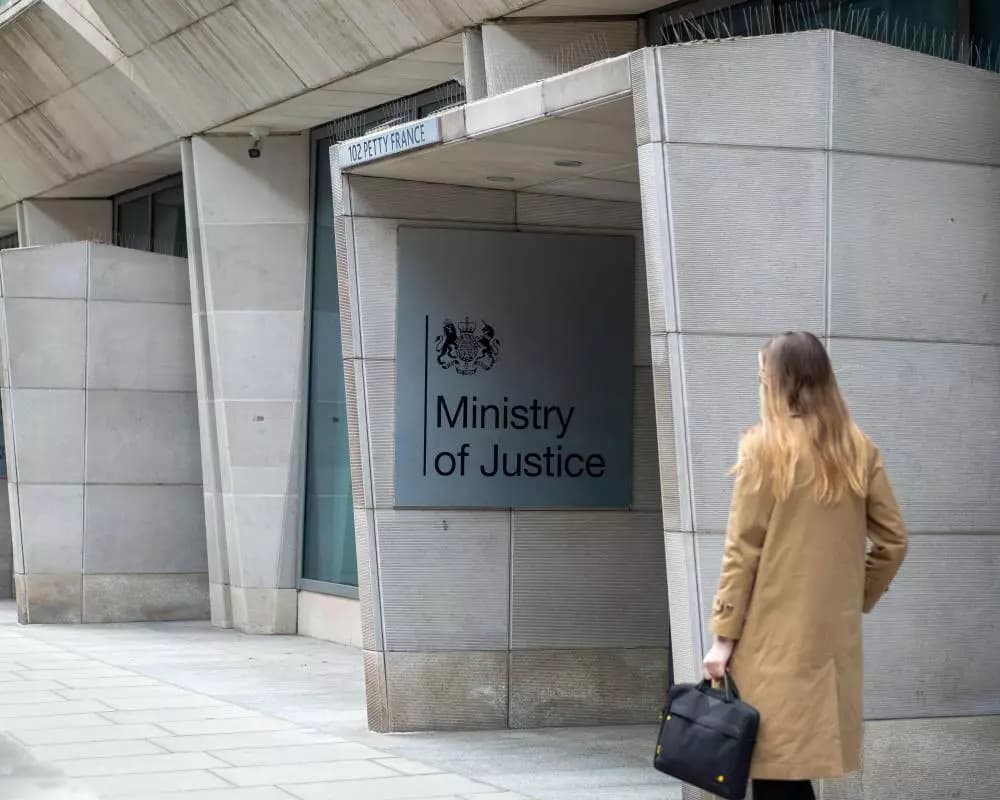We're loading the full news article for you. This includes the article content, images, author information, and related articles.
A new report by analyst firm Tussell reveals that the UK Ministry of Justice is over two years behind on publishing receipts for nearly £11 billion in public spending, raising significant concerns about transparency and accountability in government expenditure.

Nairobi, Kenya – Thursday, October 16, 2025 – The United Kingdom's Ministry of Justice (MoJ), responsible for an annual budget of approximately £13 billion covering prisons, probation, and courts across England and Wales, has reportedly failed to file spending receipts for nearly £11 billion. This revelation comes from a report by Tussell, a public spending analyst firm, which highlights a significant lapse in transparency and accountability within the UK government.
According to Tussell, the MoJ is more than two years behind the industry standard for publishing receipts for multi-million-pound contracts. The last time the department publicly filed receipts from its suppliers was in May 2023, far exceeding the typical two-month leeway for such disclosures.
A spokesperson for Tussell expressed deep concern over this gap, stating that it indicates the government is not meeting its own transparency standards. They emphasised that such delays undermine visibility over public spending, especially when accountability and scrutiny are paramount.
The estimated missing expenditure of £10.8 billion was calculated by Tussell. Between June 2022 and May 2023, the most recent 12-month period for which the MoJ has published receipts, the department's spending amounted to £5 billion. Tussell extrapolated the missing amount by dividing this figure by 12 and multiplying it by 26, representing the number of months for which receipts have not been filed.
This situation in the UK draws parallels with ongoing efforts in Kenya to enhance public financial transparency. Kenya has been working to improve its budget transparency, with the Public Procurement Regulatory Authority (PPRA) playing a key role. The PPRA is mandated to monitor, assess, and review the public procurement and asset disposal system to ensure adherence to national values and constitutional provisions on public procurement.
In August 2024, the PPRA unveiled an upgraded Public Procurement Information Platform (PPIP) to boost transparency and efficiency in Kenya's public procurement processes. This platform aims to track procurement from tender calls to complaint resolution, with new features like advanced tender viewing and improved visibility of contract awards.
Despite these advancements, Kenya still faces challenges. A March 2023 report indicated that only 9% of public entities were utilising the PPIP to publish contracts and tenders, undermining efforts for full disclosure. The Institute of Public Finance's 2023 Open Budget Survey also gave Kenya a transparency score of 55 out of 100, falling short of the 61 points considered sufficient for informed public debate on the budget.
The Office of the Auditor-General in Kenya, currently led by Nancy Gathungu, is constitutionally mandated to audit government bodies and report on their management of allocated funds. These audit reports are crucial for confirming the lawful and effective application of public money and are submitted to Parliament or relevant county assemblies for debate and action.
The lack of timely and comprehensive reporting, as seen with the UK's Ministry of Justice, can lead to significant concerns about the potential for misuse or waste of public funds. Transparency organisations, such as Unlock Democracy, have condemned such delays, emphasising their detrimental impact on the government's ability to control expenditure.
The UK MoJ has stated that all spending is accounted for in its annual accounts and that the delay is due to the need to review a substantial amount of data to prevent any risks, particularly to individuals.
The full reasons behind the Ministry of Justice's extensive delay in publishing spending receipts remain a point of contention. While the MoJ cites the need for data review to prevent risks, the prolonged nature of the delay raises questions about the efficiency of their internal processes and the robustness of their transparency commitments. The precise impact of this lack of real-time data on public scrutiny and potential financial irregularities is also difficult to ascertain without the full disclosure of information.
The Tussell report was published on Wednesday, October 15, 2025. The Ministry of Justice is expected to address the concerns raised and provide a clear timeline for the publication of the outstanding spending receipts. In Kenya, ongoing efforts by the PPRA to enhance the PPIP and improve compliance are anticipated to continue, with a focus on increasing the utilisation rate among public entities.
Observers will be keenly watching for the Ministry of Justice's response to the Tussell report and any concrete steps taken to rectify the significant backlog in publishing spending receipts. In Kenya, the effectiveness of the upgraded Public Procurement Information Platform and the commitment of government entities to utilise it will be a key indicator of progress in public procurement transparency. The upcoming audit reports from the Office of the Auditor-General will also provide further insights into the management of public funds.
Keep the conversation in one place—threads here stay linked to the story and in the forums.
Sign in to start a discussion
Start a conversation about this story and keep it linked here.
Other hot threads
E-sports and Gaming Community in Kenya
Active 9 months ago
The Role of Technology in Modern Agriculture (AgriTech)
Active 9 months ago
Popular Recreational Activities Across Counties
Active 9 months ago
Investing in Youth Sports Development Programs
Active 9 months ago